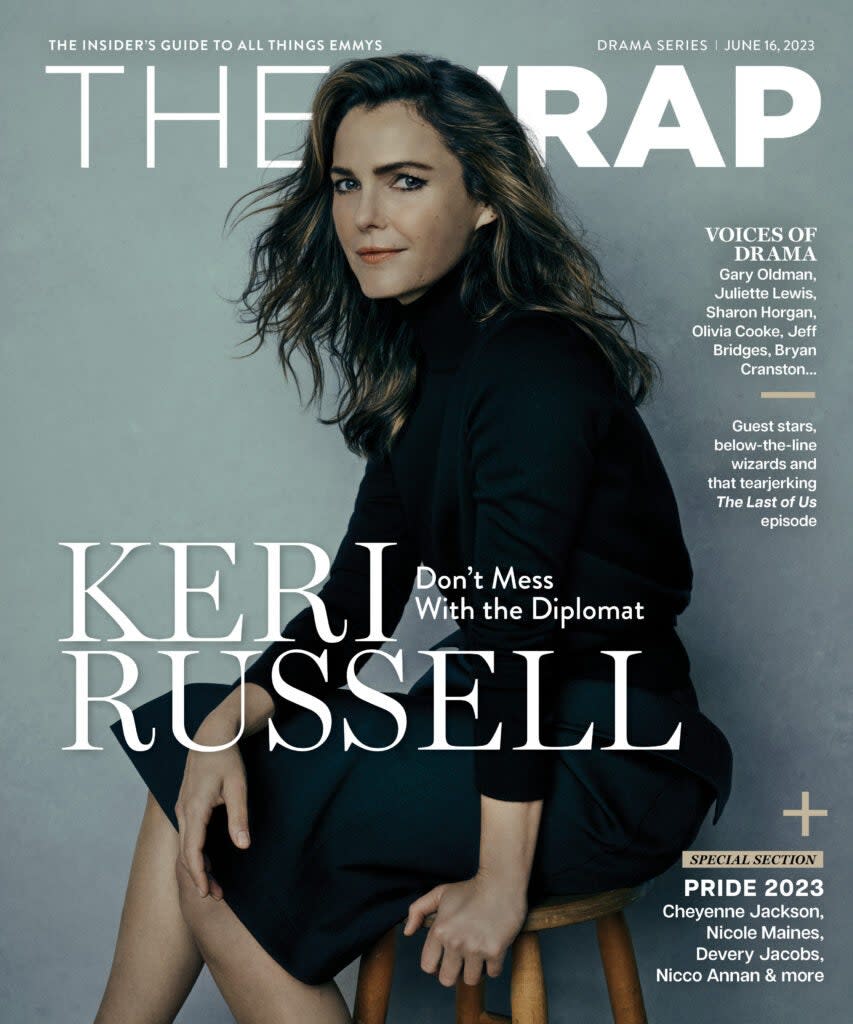‘House of the Dragon’ Star Olivia Cooke Says She Didn’t Find Her Alicent Until the End of Filming: ‘A Discovery All the Way Through’
- Oops!Something went wrong.Please try again later.
- Oops!Something went wrong.Please try again later.
- Oops!Something went wrong.Please try again later.
This story about Olivia Cookie in “House of the Dragon” first appeared in the Drama Series issue of TheWrap’s awards magazine.
In HBO’s “Game of Thrones” prequel “House of the Dragon,” Rhaenyra Targaryen and Alicent Hightower are dueling heroines who ascend to a level of power previously unknown to the female characters in the world created by George R.R. Martin.
They begin the series as best friends, but an unforgivable betrayal brings that sweet relationship to an end: Alicent marries Rhaenyra’s father, King Viserys (Paddy Considine), and becomes queen, a title Rhaenyra had claimed for herself. After a 10-year leap forward, they are played as adults by Emma D’Arcy (as Rhaenyra) and Olivia Cooke (as Alicent) and remain adversaries torn apart by ambition. Their stealth gamesmanship keeps viewers on their toes, wondering how far they will go to gain power.
Even Cooke was initially unsure who Alicent was, deep down.
“She’s a bit of an enigma to start off with,” Cooke said. “We found her as we went on, and I think it was really only by the end of filming the series that we were like, ‘Oh, OK, there she is.’ It was a discovery all the way through.”
She took over the role from Emily Carey, who plays Alicent as a younger woman, but Cooke said she didn’t sit down with Carey to work out any throughlines. “We never discussed the character, really,” she said. “I wanted to leave that up to her interpretation. I don’t think I’m in a position to lecture or guide.”
Also Read:
How ‘House of the Dragon’ Creator George R.R. Martin Transformed the Fantasy Genre Yet Again
She also figured that people change so dramatically over the course of a decade that the actresses wouldn’t need to worry about being similar.
“So much changes in the 10-year time jump, as things do in life,” she said. “I look at myself two years ago, and I’m like, God, what a wildly different person I am today.”
For Cooke, the key was to capture the conflict inherent in Alicent’s life: She’s married to the father of her former best friend.
“What do you do when you’re living in the same house as someone that you’ve got all this acrimonious tension with, who’s also your ex-best friend but now also your daughter?” she asked. “It’s a really fascinating, deeply troubled relationship that has this invisible string of tension between them at all times.”
She tried to give Alicent the sense that she is “barely keeping it together,” wracked by “subterranean tensions” that begin to surface. In fleshing out that fractured relationship, Cooke was able to explore female friendship in its complicated glory.
“It’s wonderful, casting your mind back to your fledgling childhood friendships and how those little injustices, those rejections and those moments of discovery impact you even as an adult,” she said. “Finding those moments within Alicent and Rhaenyra’s relationship implants a memory that you can draw upon when you have those scenes that are more tempestuous.”
Cooke was also able to explore the relationship between Alicent and her father, Otto (Rhys Ifans), who has used her as a means to achieve and retain power.
“She’s always known that Otto is trying to position her in the best way possible, but to what gain has always been unclear until later on in the series where it is truly revealed that Alicent has been a pawn in his hand since the day she was birthed,” she said. “It’s a lifelong deceit. You question every single decision that your father has made on your behalf: Was it for you? Was it for the realm? Or was it just for him to go down in the history books and create this legacy for himself?”
Read more from the Drama Series issue here.


